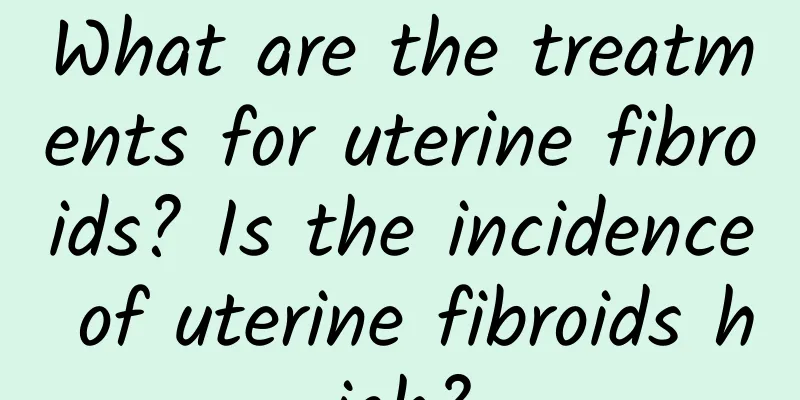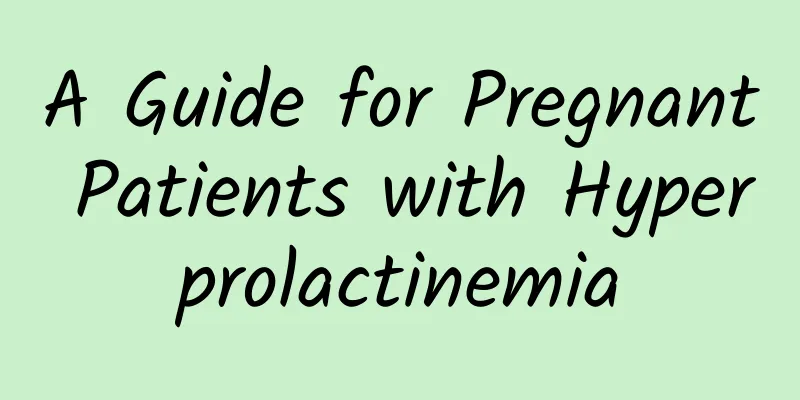Things to note when having ovulation bleeding

|
Gynecological disease experts said that during the non-menstrual ovulation cycle of women, the estrogen level temporarily decreases, causing the endometrium to be unable to continue to grow, thus causing symptoms of endometrial shedding and bleeding. Similar to menstruation, women may feel pain in the lower abdomen when they bleed during ovulation, which is caused by the shedding of serous membranes and a small amount of blood in the pelvic cavity. However, it usually does not last for a long time, at most two or three days, and at least only a few hours. Precautions for ovulation bleeding: 1. Pay attention to hygiene and prevent infection. Pay attention to the hygiene of the external genitalia. Do not have sexual intercourse during menstruation. Keep warm and avoid cold stimulation. Avoid overwork. People with heavy menstrual bleeding should avoid eating brown sugar. 2. Keep a happy spirit, avoid mental stimulation and mood swings. Some people may experience lower abdominal distension, backache, breast pain, mild fatigue, drowsiness, emotional instability, irritability or depression during menstruation. These are all normal and there is no need to be overly nervous. 3. Underwear should be soft, made of cotton, with good ventilation and air permeability. It should be washed and changed frequently, and the changed underwear should be dried in the sun. 4. Avoid eating raw, cold, sour, spicy and other irritating foods, drink more water, and keep bowel movements smooth. People with hot blood should eat more fresh fruits and vegetables before menstruation, and avoid eating onions, garlic, leeks, ginger and other things that stimulate fire. During the ovulation period, people must increase their nutrition, such as milk, eggs, soy milk, pork liver, spinach, pork, chicken, mutton, etc., and avoid eating raw and cold fruits. Experts remind that occasional ovulation bleeding is not harmful to the body. Most of the time, it is caused by overwork or low immunity, which affects the endocrine balance. It can be treated without treatment. If ovulation bleeding occurs frequently, it should be considered to be caused by endocrine disorders. Under the guidance of a doctor, some estrogen supplements can be used. Once the amount of bleeding is too much or even exceeds the normal menstrual volume, you need to go to the hospital for a comprehensive examination to rule out the presence of other organic diseases. |
<<: Can patients with ovulation bleeding get pregnant?
>>: There are several points to note for candidal vaginitis
Recommend
How many years can you live after surgery for cervical precancerous lesions?
This question is of great concern to both patient...
What are the diagnostic criteria for endometrial tuberculosis?
For women, some gynecological diseases are the mo...
Hyperprolactinemia
I believe that women who are preparing for pregna...
How to treat black menstrual residue after abortion? 5 ways to treat black menstrual residue
Abortion is one of the methods that women choose ...
It is very important to do a good job of health care to prevent ectopic pregnancy
Ectopic pregnancy is a very serious acute abdomin...
Prevent cervicitis and beware of repeated artificial termination of pregnancy
MicrosoftInternetExplorer402DocumentNotSpecified7....
Corn and pumpkin are not vegetables! Be careful with these starchy foods when eating hot pot
When the weather is chilly, I want to eat hotpot,...
What are the harmful effects of painless abortion?
What are the harmful manifestations of painless a...
What to do if you have adenomyosis and brown blood in early pregnancy
What should I do if I have brown blood in the ear...
What is the main cause of pelvic inflammatory disease?
Pelvic inflammatory disease is a common disease i...
Several common health care methods for uterine fibroids in daily life
"What are the health care methods for uterin...
Analysis on how to prevent chronic cervicitis
With the increasing incidence of chronic cervicit...
Some common causes of adnexitis
Adnexitis is a gynecological disease, and there a...
Focus on explaining the dietary taboos for dysmenorrhea
Women need to pay special attention to their diet...
What are the treatments for severe cervical erosion?
Severe cervical erosion refers to the situation w...









